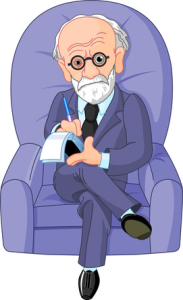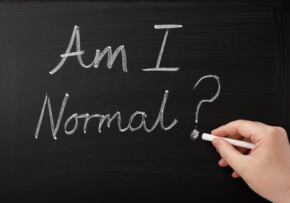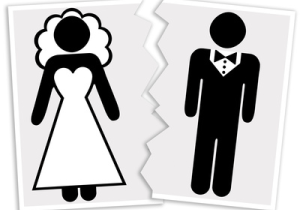
What is a Psychologist?
What is a Psychologist?
In mental health and psychology, there are a lot of professional designations, fancy titles, and letters after therapists’ names. It can get a little confusing! In this post, I will talk about psychologists: who they are, what they do, and how a psychologist can help you in many different ways.
Types of Psychology: Clinical, Counseling, and Research
Most psychologists can be placed into one of two categories: 1) psychologists who work directly with individuals to treat mental disorders or help them with life and emotional difficulties (clinical or counseling psychologists), and 2) psychologists who teach at universities and conduct research on psychological topics. Occasionally, some psychologists do both.
In order to become a counseling or clinical psychologist, you must first obtain a doctoral degree in clinical psychology or counseling psychology, then complete an internship, and pass a state board exam. The exact coursework that leads to becoming a licensed psychologist sometimes varies by state–and of course by country. For the most part however, clinical/counseling psychology programs include training in diagnosis and treatment of mental disorders, marriage and family therapy, testing and assessment, and community mental health.
In contrast, research psychologists are focused on learning about how the mind works, what motivates human behavior, evaluating the effectiveness of different mental health treatments, and understanding how people relate to one another. They generally teach, write and publish books and articles, and conduct research on these topics.
Other Types of Psychologists
In addition to psychologists who help people directly (for example in a private practice, a counseling center, or a hospital) and psychology researchers and professors, there are many other types of psychologists. Here are a few others:
Forensic Psychologists:
Forensic psychologists participate in the criminal justice process. They typically conduct mental health and psychological evaluations for criminal proceedings, and they may testify as expert witnesses in court. For example, if someone commits a crime and pleads an “insanity” defense, a forensic psychologist would testify to help determine if the offender was really “insane”. The educational requirements to become a forensic psychologist vary; some students go directly into a forensic psychology doctoral program, while others first obtain a doctorate in clinical psychology and later specialize in forensic practice through continuing education training..
Organizational and Industrial Psychologists:
Organizational and Industrial Psychologists (IO psychologists) are experts in management and productivity. They consult with business and industry leaders on issues such as effective management, motivating employees, creating work environments that promote well-being and productivity, improving organizational dynamics, etc.
Sports Psychologists:
Sports psychologists work primarily with athletes (including child athletes) to help them improve mindset and performance. You may have heard of books like The Inner Game of Golf, which teaches how a winning attitude can actually improve performance in the sport. Sports psychologists also help athletes cope psychologically with injuries and provide them with emotional support during rehabilitation.
Is Dr. Chantal a Psychologist?
Dr. Chantal has completed seven years of graduate training in mental health and psychology, which focused on three different subfields. Her first master’s degree is in mental health counseling (clinical focus), her second master’s focused on developmental psychology, and her Ph.D. (doctorate) is in social & personality psychology (research focus). In the state of Florida, licensure as a “clinical psychologist” or “psychologist” is limited to individuals with doctorates in clinical or counseling psychology only; therefore, Dr. Chantal is instead licensed as a mental health counselor, which means that she is a licensed psychotherapist. There are several other professions that are considered psychotherapists; for more on that, click here.

Types of Mental Health Professionals in Florida
Common Professional Designations in Mental Health and Psychology:
LP = Licensed Psychologist
LPC = Licensed Professional Counselor (does not exist in Florida)
Psy.D. = Doctorate in Clinical Psychology (this training does not include a research or dissertation component)
Ph.D. = Technically called “Doctor of Philosophy”, but it really has nothing to do with philosophy. It is simply the academic designation for someone who has completed a doctorate in their field of study (e.g., doctorate in psychology), and their training has included a research and dissertation component.
M.D. = Medical Doctor
LMHC = Licensed Mental Health Counselor
LMFT = Licensed Marriage and Family Therapist
LCSW = Licensed Clinical Social Worker
RELATED POSTS:
Psychologist, Psychotherapist, Psychiatrist: What’s the Difference?
What are you using for email - Subscribe form here.
Get In Touch
(954) 559-2936
Please contact me via my contact form at vcita:
Contact Form for Plantation Counseling and Wellness / Plantation Psychiatry
We Are Hiring!
We are always looking for great clinicians and administrative staff. If you are interested in working with us, email your resume and a brief note to [email protected]
Tour Our Office
Our counseling, therapy and psychiatry office in Greater Fort Lauderdale, Florida is private and cozy.
Take a peek inside!


Dr. Chantal Gagnon
Dr. Chantal Marie Gagnon, Ph.D., LMHC is a licensed psychotherapist, relationship counselor, and life coach in Plantation, Florida. Dr. Gagnon provides individual therapy, family counseling services, and couples therapy in her Plantation, FL office. Coaching services are available nationwide.
Did this Article Help?
Here are a few more you might want to Read

















